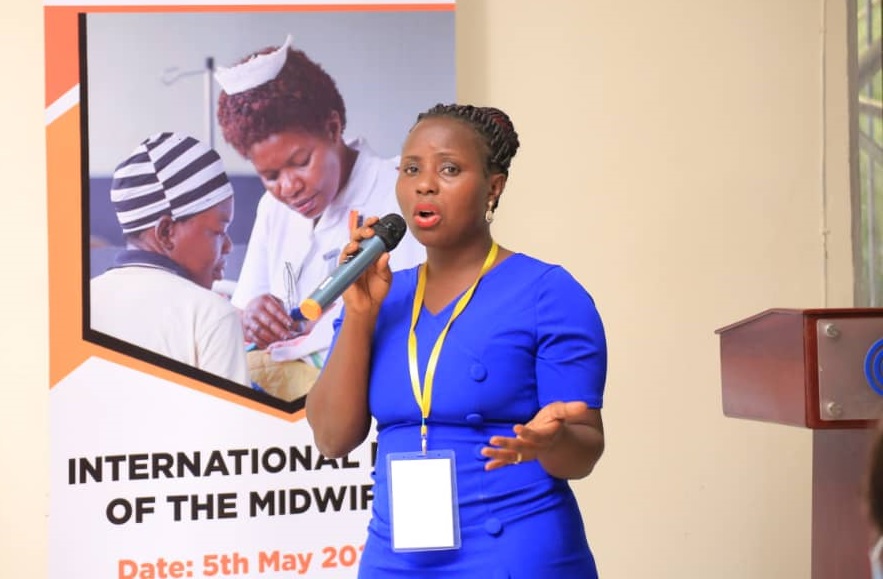As midwives, being ‘with woman’ is at the heart of what we do every day. This is part of our identity and it’s the literal meaning of a midwife. Hence, being with a woman means ensuring that she has the right information, including risks and benefits of choice, to make the decisions that are right for her and her baby. Therefore, midwives act as advocates for these women in ensuring their decisions are understood, and articulated and, above all, to ensure their safety and well-being and that of their babies.
It is important for us to know that being with a woman doesn’t just apply to labour and birth but to the whole continuum of care ie throughout adolescence, pregnancy, childbirth, and the postnatal and newborn periods
In Uganda, especially in the high-end private hospitals, the presence of a midwife has been undermined. And with it, the trust women have in their own bodies has also been undermined. The shift to more medicalised birth in this 21st century has taken away some of women’s autonomy and choice. The systemic pendulum has swung too far in one direction, where unnecessary birth interventions have become the norm. These include; women lying in bed, attached to a monitor, whether they needed it or not, labour not progressing because they are immobile.
A cascade of interventions that isn’t good for women and babies and leaves them feeling disempowered. We currently see unacceptably high institutional deliveries by caesarean section. This isn’t good for midwives either. As midwives (most especially in private settings), we have begun to lose our confidence in our skills to support women through physiological labour and birth.
Therefore, there is a need to put a government policy to reduce the over-medicalisation and over-intervention of normal labour and childbirth. Targets to reduce unnecessary caesarean sections should be imposed by the Government of Uganda through the Ministry of Health and the umbrella governing the private hospitals.
A healthy mother and a healthy baby and family integrity must be the focus of high-quality maternity services. High-quality care should be safe, effective, woman-centred, timely and equitable. It should also be evidence-based and delivered as close as possible to the communities where women live or work. It should continue to be free and accessible to everyone at the point of need.
It should be emphasized that high-quality care encompasses midwifery-led care for normal pregnancy, birth and the postnatal period. Therefore, all women need midwifery care at every stage.
The author; Lilian Nuwabaine Luyima; is a BSc Nurse & MSN-Midwife & Women’s’ Health Specialist
If you would like your article/opinion to be published on Uganda’s most authoritative news platform, send your submission on: [email protected]. You can also follow DailyExpress on WhatsApp and on Twitter (X) for realtime updates.



